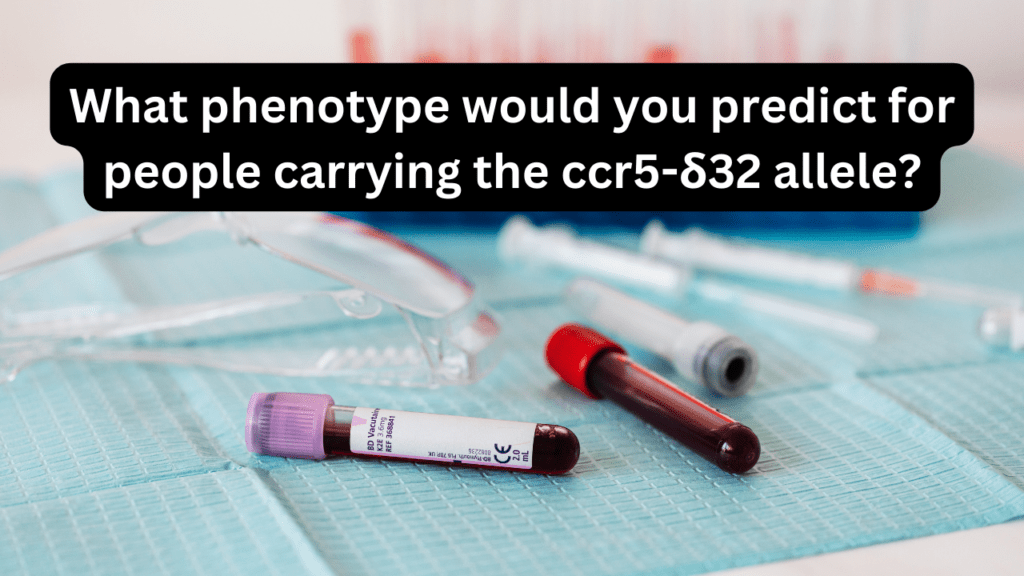Individuals carrying the CCR5-Δ32 allele, which involves the deletion of a 32-base pair section of the CCR5 gene, are predicted to exhibit a specific phenotype related to their immune response and susceptibility to certain infections, particularly HIV.

- Resistance to HIV Infection:
One of the most significant aspects of the CCR5-Δ32 allele is its association with resistance to HIV infection. The CCR5 receptor is a key entry point for R5 strains of HIV to infect T cells.
Individuals with the CCR5-Δ32 allele either lack or have a modified CCR5 receptor, making it less accessible to the virus. As a result, these individuals are less susceptible to HIV infection, and if infected, the progression to AIDS is often slower.
- Increased Resistance to Other Infections
CCR5 is not only involved in HIV infection but also plays a role in the immune response to other pathogens. While the absence of functional CCR5 may protect against certain infections, it’s important to note that the impact on susceptibility to other diseases is complex and may vary.
- Geographic Distribution:
The prevalence of the CCR5-Δ32 allele is notably higher in populations of Northern European descent, with an estimated frequency between 5% and 14%.
This distribution is thought to be a result of natural selection, possibly driven by historical exposures to infectious diseases.
- Normal Immune Function:
Importantly, individuals with the CCR5-Δ32 allele generally exhibit normal immune function. The deletion of the 32-base pair section does not appear to compromise the overall immune response or cause immunodeficiency.
- Potential Implications for Therapeutics:
The understanding of CCR5 genetics has implications for therapeutic interventions. Drugs targeting the CCR5 receptor have been developed as a means to prevent HIV entry into cells.
Individuals with the CCR5-Δ32 allele may already have reduced susceptibility to HIV, but this genetic knowledge has spurred research into developing therapeutic strategies for others.
Individuals carrying the CCR5-Δ32 allele are likely to have a reduced susceptibility to HIV infection due to the altered CCR5 receptor. This genetic variation highlights the complex interplay between host genetics and infectious diseases, providing valuable insights for both HIV research and our broader understanding of the human immune system.